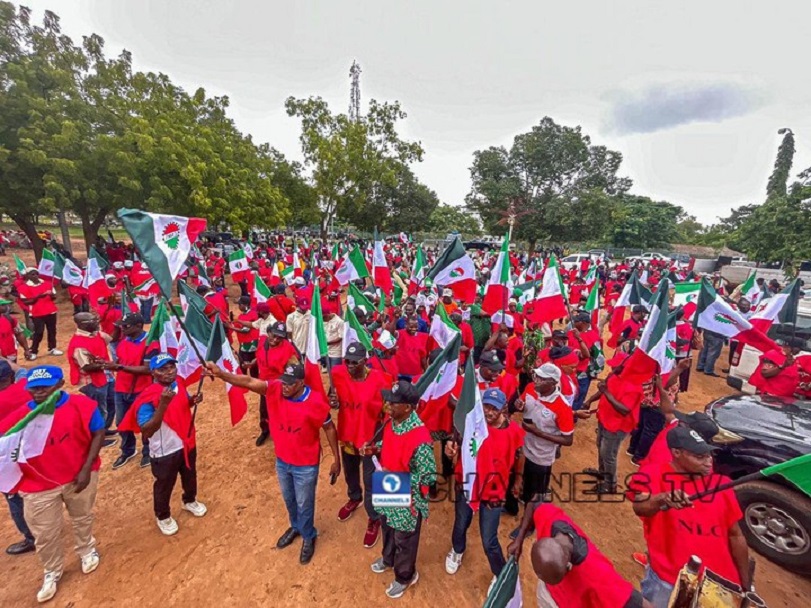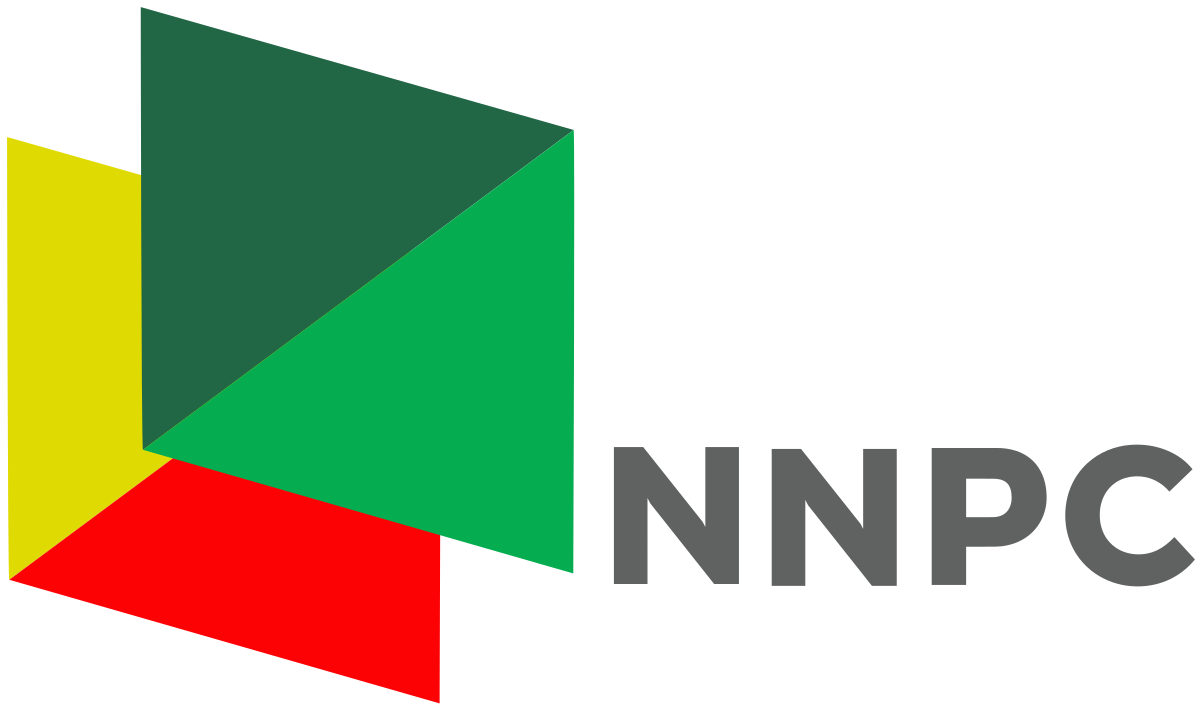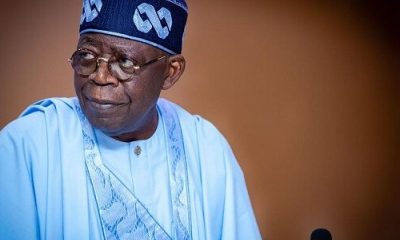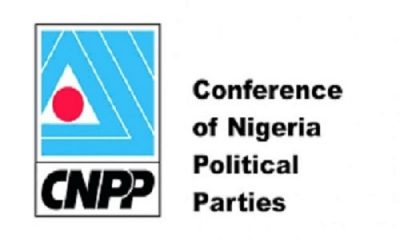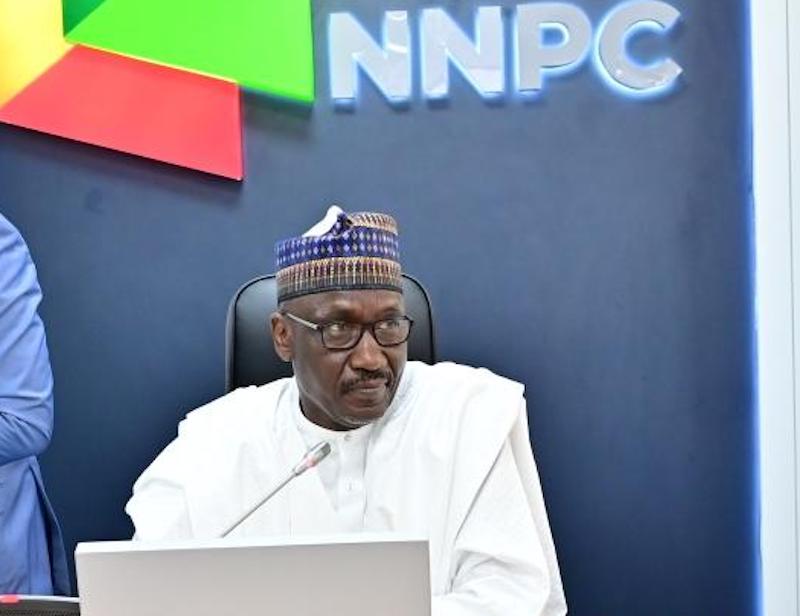General
CNPP Accuses FG of Deceit in Subsidy Implementation
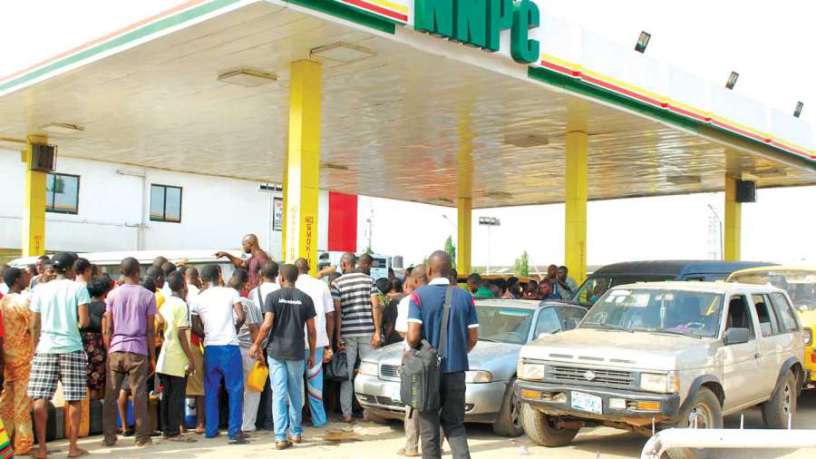
By Modupe Gbadeyanka
Leaders of the Nigerian labour unions, including the Nigeria Labour Congress (NLC) and the Trade Union Congress (TUC), have been accused of “representing their personal interests and not that of their members.”
This accusation was made by the Conference of Nigeria Political Parties (CNPP) in a statement issued on Sunday in Abuja by its Secretary General, Mr Willy Ezugwu.
The group said it was prepared to lead the anti-subsidy struggle when Nigerians are ready to take their future into their hands.
It also accused the Nigerian National Petroleum Corporation (NNPC) and the federal government of being deceitful in implementing the subsidy regime, saying that “what the federal government wants to do is fuel price increment, not subsidy removal.”
The CNPP noted that “it is disheartening that the Nigerian labour unions have joined the All Progressives Congress led federal government in its deceitful and manipulative tendencies since the APC government came to power.
“Before they won the election in 2015, the APC made Nigerians to believe that fuel subsidy does not exist, tagging it a scam. But immediately after they won the election, the APC led federal government swiftly increased the pump price of petrol.
“The former Minister of State for Petroleum Resources and Group Managing Director of the NNPC, Ibe Kachikwu in December 2015 revealed that the federal government has concluded plans to remove the subsidy on fuel by 2016.
“By May 2016, the Federal Government announced that it had removed fuel subsidy and petrol was to sell for N145 per litre. In fact, NNPC made Nigerians believe that marketers were free to bring in fuel cargoes and sell, subject to meeting standard quality control.
“But in the deceitful character of the federal government, the NNPC then insisted on a benchmark of N145 per litre as a recommended pump price. Do you remove subsidies and dictate or suggest prices at the same time if you are sincere?
“The CNPP at the time queried the rationale behind removing the subsidy and at the same time interfering in pump price by fixing a benchmark of N145 per litre of petrol.
“While highlighting the contents of a briefing after a meeting with Vice President Yemi Osinbajo in 2016, Kachikwu said: “We have just finished a meeting with various stakeholders presided over by His Excellency, the Vice President. The meeting had in attendance the leadership of the Senate, House of Representatives, Governors Forum, and Labour Unions (NLC, TUC, NUPENG, and PENGASSAN)”, the then minister told Nigerians.
“But at a point, the federal government made a U-turn on the fuel subsidy removal when, contrary to viral media reports in 2016 that the federal government has ended fuel subsidy, Vice President Yemi Osinabjo said it was not true, explaining that what the government did was to withdraw the monopoly enjoyed by the NNPC to allow free market sales.
“The free market sales and importation of petrol by the independent marketers never happened because the federal government simply deceived Nigerians that subsidy was removed. Nigerians endured but till date, there has not been any meaningful improvement in the lives of the poor.
“This cycle of deceit has continued till date as the federal government has hinted on yet another fuel price increment which it has again tagged fuel subsidy removal. How many times will the government remove fuel subsidies?
“The same labour unions leaders who were part of the earlier negotiations are the same ones negotiating with the federal government today in another cycle of personal enrichment while Nigerians are to pay N340 per litre of petrol and at a time cooking gas is already out of the reach of the ordinary citizens.
“It is laughable that the only palliative from the federal government is N5, 000.00 naira to a few Nigerians, which government officials will eventually siphon into private pockets like the COVID-19 conditional cash transfer.
“With the level of infrastructure decay in the country, where all federal roads are not motorable, the federal government is talking about cash transfer because it is the new safe way to siphon our commonwealth.
“The CNPP is ready to lead Nigerians anytime they want to end this series of subsidy removal deceit by the federal government in connivance with labour leaders in the country”, the CNPP concluded.
General
NIMASA Rallies Stakeholders’ to Develop National Action Plan

By Adedapo Adesanya
The Nigerian Maritime Administration and Safety Agency (NIMASA) has pledged its commitment to provide the regulatory leadership, technical coordination, and stakeholder engagement required to successfully develop and implement a robust National Action Plan on maritime decarbonization in Nigeria.
The Director General of the agency, Mr Dayo Mobereola, made this known during the National Stakeholders’ workshop on the development of a National Maritime Decarbonization Action Plan, further describing the workshop as a critical step in actualising the Federal Government’s blue economy and climate objectives.
Represented by the Executive Director, Operations, Mr Fatai Taiye Adeyemi, the NIMASA DG underscored the significance of the IMO GreenVoyage2050 Project, a technical cooperation initiative /designed to support developing countries in implementing the IMO GHG Strategy.
According to him, the National Action Plan being developed will reflect national realities, leverage existing capacities, address identified gaps, and align with broader economic and environmental priorities of the federal government.
Mr Mobereola stressed that “this transition is not merely about compliance with international obligations, it is about safeguarding our marine environment, protecting public health, strengthening the blue economy, and ensuring that our maritime industry remains competitive and future-ready”, the DG said.
Also speaking at the event was the Technical Manager of the IMO GreenVoyage2050 Project, Ms Astrid Dispert, who highlighted that the overarching objective of the initiative is to advance a coherent and globally aligned regulatory framework to accelerate maritime decarbonization.
She also emphasised that NIMASA plays a pivotal role in driving the project at the national level.
The IMO GreenVoyage2050 Project provides technical expertise and institutional support to assist countries in developing and implementing National Action Plans that promote sustainable shipping practices, encourage investment in clean technologies, and strengthen capacity for long-term emissions reduction.
Through this collaboration, the federal government is advancing deliberate steps towards maritime decarbonization, reinforcing its commitment to global climate goals and ensuring a cleaner, greener, and more sustainable future for the sector.
General
BPP Mandates Digital Submission for MDAs From March 1

By Adedapo Adesanya
The Bureau of Public Procurement (BPP) has directed all Ministries, Departments and Agencies (MDAs) to comply with its digital submission process effective March 1.
The directive was contained in a circular signed by the Director-General of the Bureau, Mr Adebowale Adedokun, noting that the move was part of the bureau’s commitment to digital transformation and paperless governance.
It explained that the transition followed an earlier circular of Aug. 4, 2025, which introduced electronic submission procedures.
According to the bureau, it has successfully moved from physical filings to a dedicated e-mail service for document submissions and is now advancing to a more robust and integrated system.
The circular announced the inauguration of the BPP Digital Submission Portal, a web-based platform designed to enable MDAs submit procurement-related documents directly to the Bureau.
It stated that the automated platform would streamline the submission process, enhance transparency and ensure accelerated tracking of procurement-related documents and petitions.
“With effect from March 1, all MDAs will be required to use the portal to submit requests for ‘No Objection’ Certificates, approvals for ‘No Objection’ for special procurements, clarifications and status updates on submissions,” the bureau said.
It added that the portal would be hosted on the Bureau’s official website and would become fully operational from the effective date.
The bureau warned that physical submissions or manual hand-deliveries would no longer be prioritised and would eventually be rejected following the full transition to the digital platform.
It urged accounting officers to brief their procurement departments and ICT units on the development to ensure seamless processing of procurement activities from March 1.
It further advised MDAs to contact the Bureau via its official email for information on the onboarding process and integration into the portal.
The bureau emphasised that full compliance by all MDAs was required to ensure a smooth transition and avoid delays in the implementation of the 2026 fiscal year procurement processes.
General
Senate Seeks Removal of CAC Boss Hussaini Magaji
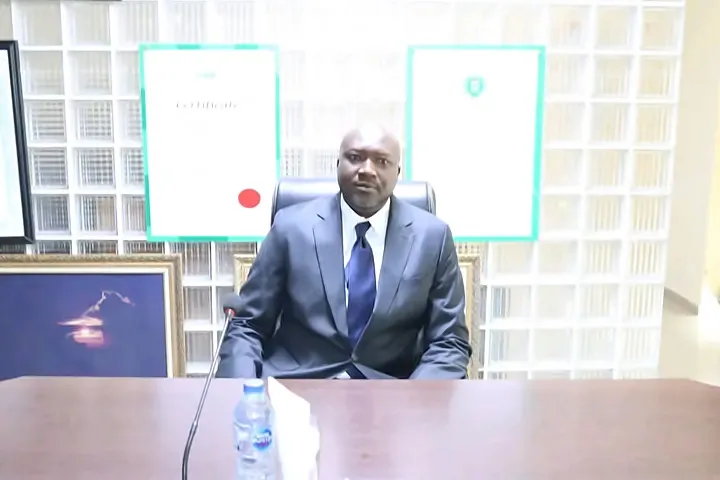
By Adedapo Adesanya
The Senate has asked President Bola Tinubu to remove the Registrar General of the Corporate Affairs Commission (CAC), Mr Hussaini Ishaq Magaji, from office.
The Senate Committee on Finance, while passing a resolution in Abuja on Thursday, accused Mr Magaji, a Senior Advocate of Nigeria (SAN), of failing to honour the Senate’s invitations to account for the finances of his agency.
“He refused on so many occasions to honour our invitation to appear before this committee.
“We have issues with the reconciliation of the revenue of CAC.
“Each time we invite him, he gives us excuses,” the Chairman of the committee, Mr Sani Musa, said as the committee passed the resolution.
CAC was part of a group of agencies that the House of Representatives Public Accounts Committee (PAC) recommended zero allocation for the year 2026, for allegedly failing to account for public funds appropriated to them.
The committee, at an investigative hearing held two weeks ago, accused CAC and some other ministries, departments and agencies (MDAs) of shunning invitations to respond to audit queries contained in the Auditor-General for the Federation’s annual reports for 2020, 2021 and 2022.
The PAC chairman, Mr Bamidele Salam, stated that the National Assembly should not continue to appropriate public funds to institutions that disregard accountability mechanisms, saying this will create fiscal discipline and strengthen transparency across federal institutions and conform with extant financial regulations and the oversight powers of the parliament.
“Public funds are held in trust for the Nigerian people. Any agency that fails to account for previous allocations, refuses to submit audited accounts, or ignores legislative summons cannot, in good conscience, expect fresh budgetary provisions. Accountability is not optional; it is a constitutional obligation,” he said.
-

 Feature/OPED6 years ago
Feature/OPED6 years agoDavos was Different this year
-
Travel/Tourism10 years ago
Lagos Seals Western Lodge Hotel In Ikorodu
-

 Showbiz3 years ago
Showbiz3 years agoEstranged Lover Releases Videos of Empress Njamah Bathing
-

 Banking8 years ago
Banking8 years agoSort Codes of GTBank Branches in Nigeria
-

 Economy3 years ago
Economy3 years agoSubsidy Removal: CNG at N130 Per Litre Cheaper Than Petrol—IPMAN
-

 Banking3 years ago
Banking3 years agoSort Codes of UBA Branches in Nigeria
-

 Banking3 years ago
Banking3 years agoFirst Bank Announces Planned Downtime
-

 Sports3 years ago
Sports3 years agoHighest Paid Nigerian Footballer – How Much Do Nigerian Footballers Earn


